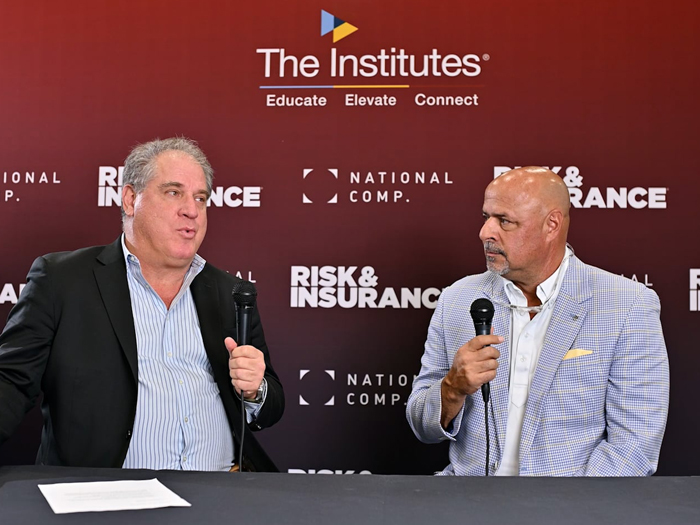Stronger Building Codes – A Non-Negotiable Step for Small and Mid-Market Business Resilience
Resilience is one of the cornerstones of a healthy insurance market for consumers. Nationwide has been
advocating for communities to adopt modern building codes and encourage properties to be built to
FORTIFIED standards developed by the Insurance Institute for Business and Home Safety (IBHS).
Strong, enforceable building codes are the most effective way to protect property, reduce damage, save
lives and lessen the need for post-catastrophe federal aid.
Severe weather events are no longer rare; they’ve become the new normal, leaving businesses and
communities vulnerable. In 2024 alone, hurricanes and extreme weather events caused billions in
damages, disrupting lives and businesses alike. While much attention is paid to the impact these
extreme weather events have on homeowners and renters in those communities, business owners are
also victims to Mother Nature’s fury.
Severe weather events have a profound impact on businesses, often resulting in significant financial
losses and long-term disruptions.
Severe Weather Impacts on Businesses
According to McKinsey and Company, nearly 60% of small businesses in Florida were affected by
Hurricane Milton, which swept across the state in October 2024. These businesses, collectively
generating over half a trillion dollars in revenue, faced substantial challenges in recovering from the
storm’s devastation. Additionally, the U.S. Census Bureau's Business Trends and Outlook Survey revealed that 31.3% of businesses in Tennessee experienced monetary losses due to extreme weather in
early 2024.
On average, some studies show that the recovery costs for small businesses can range from $3,000 to
$25,000 or more, depending on the severity of the damage and the specific circumstances. These costs
include property damage, lost revenue due to downtime, and expenses related to rebuilding and
restoring operations.
Unfortunately, many businesses never fully recover from such events; the Small Business Credit Survey
found that 1 in 10 small employer businesses suffered losses from natural disasters, with some unable
to reopen their doors.
These statistics highlight the critical need for robust disaster preparedness and resilient building
practices to mitigate the financial impact of severe weather on businesses.
High Agreement on Importance
Fortunately, many business owners understand the importance of modernizing current building code
standards. According to a recent Nationwide survey, 79% of small business owners (SBOs) and 73% ofmid-market business owners (MMBOs) emphasize the significance of these standards for risk mitigation.
Furthermore, 81% of SBOs and 74% of MMBOs agree that building code compliance is vital for
mitigating severe weather damage.
That’s why it’s concerning that, according to FEMA, 65% of U.S. counties, cities and towns are not
adhering to modern building codes to help protect structures from severe weather.
In today’s market, customers and partners increasingly value businesses that demonstrate a
commitment to sustainability and resilience. By investing in advanced building standards and
technologies, business owners can showcase their forward-thinking and responsible approach. This not
only enhances their reputation but also builds confidence among customers and stakeholders, fostering
stronger business relationships and loyalty.
Willingness to Invest
There is a notable willingness among business owners to invest in building code compliance. Data shows
that 77% of SBOs and 57% of MMBOs are prepared to spend more to ensure their properties meet the
required standards. Additionally, 90% of construction leaders have expressed their readiness to invest in
ensuring buildings are up to code. This willingness to invest underscores the recognition of the long-
term benefits of building code compliance.
Addressing Barriers
Despite the clear benefits, there are barriers that business owners face in upgrading their properties.
Construction costs are the top obstacle for SBOs, with 48% citing it as a major concern. For MMBOs,
business disruption is a primary challenge, also noted by 48% of respondents.
While the initial costs of building to higher standards may seem daunting, the long-term financial
benefits are substantial. Investing in resilient structures can lead to significant savings on insurance
premiums, disaster recovery expenses, and energy efficiency. The upfront costs are outweighed by the
potential savings, making it a financially sound decision for business owners. Insurance agents should
emphasize these long-term cost benefits when discussing building code compliance with their clients.
Businesses need stronger building codes now
As we’ve seen during the past few years, severe weather causing widespread damage has become the
rule rather than the exception. It’s critical that carriers, consumers, business owners, regulators and
policymakers take appropriate steps to ensure that current and new properties are built to withstand
these powerful events.










